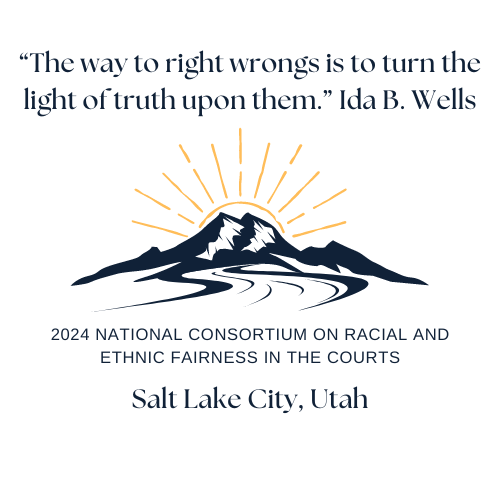
Join us in Salt Lake City for our 36th Annual Conference. The theme of the conference is “The Way to Right Wrongs is to Turn the Light of Truth Upon Them.” There will be continued discussions of ongoing initiatives, current activities and reforms taking place across the country addressing cultural competence, equity, and other related topics.
Register for the 2024 NCREFC conference here.
- $625 Early Registration (BEFORE March 29, 2024)
- $675 Regular Registration (AFTER March 29, 2024)
- $350 Daily Rate
- $325 Guest Fee (includes receptions, breakfast, and luncheons)
The Conference will take place at the Little America Hotel, 500 South Main Street, Salt Lake City, UT 84101. You may make reservations at the special conference rate of $225 per night (plus taxes and fees) here. The cutoff date for hotel reservations at the conference rate is Monday, April 29, 2024 or until room block is full.
We are excited to announce the presentation of the Achievement in Equity Award to a deserving individual or organization whose exceptional commitment to Racial and Ethnic Fairness in the Courts have significantly impacted the community. Nominations are being accepted until March 29, 2024. You'll find more information on the Equity Achievement Award here.
Detailed written reports continue to provide valuable resources and useful “how to” information to our membership and conference attendees. We encourage you to participate in the State of the States Reports by both submitting a written report per the guidelines and by offering a brief (3-5 minute) highlight during the State of the States session at the conference and annual meeting. Written reports are requested by March 29, 2024, and should be submitted here.
The National Consortium on Racial and Fairness in the Courts National Conference and Annual Meeting is a valuable opportunity to gather to discuss current challenges to race equity and racial fairness in the courts and share practical strategies for advancing equal access to courts and eliminating structural, systemic, and institutional barriers to justice through the courts.
